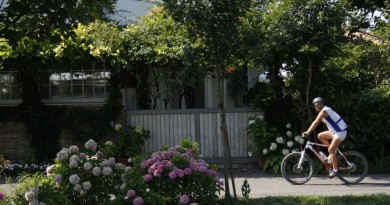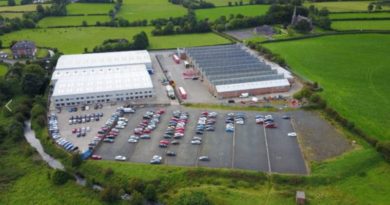Increase walking and cycling budget to relieve NHS, says Sustrans CEO
The CEO of sustainable transport charity Sustrans, Xavier Brice, has penned an open letter to the next Prime Minister calling for an increase to the five-year, £2 billion walking and cycling budget.
With an air of uncertainty surrounding active travel policy lingering since Boris Johnson announced he would leave office, many commentators, including Brice, are concerned that cycling has lost an ally in Number 10. Notably, Andrew Gilligan, Johnson’s right-hand man on cycling and a special advisor, is likely to be removed in the switchover.
As reported this week, anti-cycling sentiment is beginning to emerge in the transition of leadership, with both leadership candidates turning down the dial on climate policy, among other areas that could lend to increased active travel.
Flagging the disparity between the £27 billion roads budget at a time when the cost of living crisis, plus pressures on the NHS are giving the Government severe challenges, Brice writes “The current administration’s 2020 investment of £2 billion in walking and cycling schemes to help level up the country was welcome, and we’re asking that this be increased for the long-term by the next occupant of 10 Downing Street.”
Given the link between active transport and improved health and mental wellbeing, it was previously announced that GPs would be encouraged to ‘prescribe’ cycling to NHS patients as part of health improvement measures.
Xavier Brice’s letter in full reads:
Whoever wins the Conservative leadership election, we lose a benefactor of cycling and walking and their vital public health benefits. This is at a time when physical inactivity costs the at-breaking-point NHS £900 million a year, and driving a car is becoming increasingly unaffordable, not to mention the damage to the environment.
Rishi Sunak and Liz Truss must commit to long-term funding for walking and cycling, and to embed the principle of 20-minute neighbourhoods into planning policy, so that new homes are only built if they’re within a 20-minute walking round trip, of amenities like GPs, shops and primary schools. Walking and cycling locally means more exercise, safer roads, better air quality and, ultimately, healthier and happier communities.
The current administration’s 2020 investment of £2 billion in walking and cycling schemes to help level up the country was welcome, and we’re asking that this be increased for the long-term by the next occupant of 10 Downing Street. By contrast, £27 billion is spent on roads.
Embedding physical activity into daily routines, like commuting or going to the shops, helps relieve the burden on the NHS. Building homes on former agricultural land, further and further away from basic amenities, means more car-dependent households and ever-busier country roads, which are no longer so safe for walking, cycling or horse riding.
With the cost-of-living crisis and rising cost of fuel, walking, wheeling (for example in a wheelchair or mobility scooter) and cycling should continue to be made the easiest, most obvious and convenient choice for short, everyday journeys. In Kendal, Cumbria, Sustrans helped to provide a new footbridge across a river, for pedestrians, cyclists and wheelchair users, helping to reconnect them to their local community after Storm Desmond damaged its predecessor. This enables people to access daily the essential facilities they couldn’t before, without having to rely on a car.
More active travel means safer, healthier neighbourhoods, with clearer roads for those that have no choice but to drive. Car ownership is lowest for those on the lowest incomes, while deprived communities are often in areas near busy roads with higher pollution. Air pollution causes up to 36,000 deaths per year, is linked to dementia, cancer, strokes, heart disease, and asthma, and particularly affects children and older people according to the Royal College of Physicians.
Though guidance exists to encourage councils to ensure new homes are within 800m of local amenities, most councils would not turn down a development site simply because it was too far away, either. Just under half said political priorities or a lack of buy-in from local politicians were barriers to decision-making that would achieve 20-minute neighbourhoods.
To achieve net zero and address the climate crisis we need to reduce car dependency. It’s what people want, as 79% of the more than 24,000 people surveyed across 18 cities in the UK and Ireland support 20-minute neighbourhoods, and two thirds of people support low-traffic neighbourhoods. These are where through-traffic, or rat-running, is reduced on residential roads so that they’re safer for walking, cycling, and for children.
We also found that, at present, just over half of disabled people and residents on low incomes don’t feel comfortable or welcome when walking where they live. Walking (or wheeling) around your local area should not be a luxury. Places that are almost entirely dependent upon private cars are fundamentally unjust and unhealthy.
People must be provided with better opportunity to choose how they travel, for the sake of the NHS, for household finances, and to save our environment. Delivering lasting change for everyone, through active travel investment, is surely a solution, instead of a cost saving measure to be made by the new Prime Minister.



